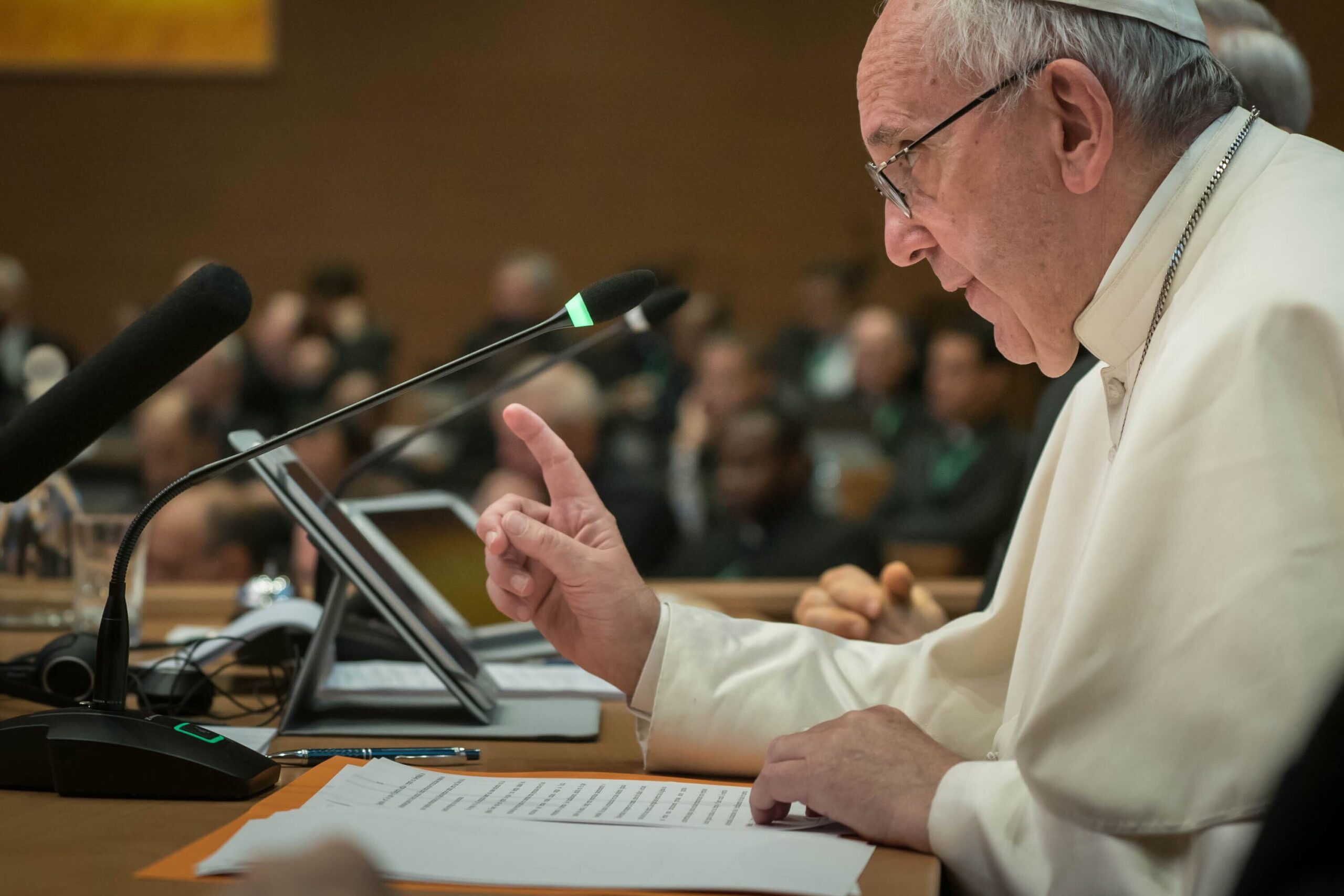“Everyone in the Church is invited, including people who are divorced, including people who are homosexual, including people who are transgender,” Pope Francis writes in his new book, Hope: The Autobiography. The roughly 300-page book, written with Italian book publisher Carlo Musso, was published in English on Tuesday.
The project began in 2019 and was not slated to be published until after the pope’s death, but its publication date was moved up to coincide with the Jubilee year. While the book contains many anecdotes from the pope’s personal life, some reviewers have said it offers little insight into the decisions he has made later, as pope.
Comments explicitly addressing the role of LGBTQ people in the church are confined to a few pages, and much of this material seems to be drawn from previous statements or comments from the pope. But taken together, they are a reaffirmation of the pope’s efforts for making the church more welcoming to LGBTQ people, even within the confines of church teaching on gender and sexuality.
Meetings with transgender Catholics
Pope Francis writes about one of his meetings with groups of transgender people, recalling how in one instance, some people left the meeting in tears after the pope held their hands and embraced them.
“As if I had done something exceptional for them,” the pope writes. “But they are daughters of God!”
Francis added that transgender people must be allowed to access the sacraments like any other believers, and repeats his assertion that transgender people are allowed to be baptized, serve as godparents or witnesses at a wedding.
“They can receive baptism on the same conditions as other believers and can perform the responsibilities of godparents on the same conditions as others, and likewise be witnesses to a marriage,” he writes. “No provision of canonical law forbids it.”
Opposition to criminalization laws
The pope reiterates his opposition to the criminalization of homosexuality, which is still a reality in dozens of countries. Homosexuality, he writes, “ is not a crime, it is a human fact, and the Church and Christians cannot remain indifferent in the face of this criminal injustice, nor can they respond faintheartedly.”
Regarding gay people more broadly, the pope writes, “God the Father loves them with the same unconditional love, He loves them as they are, and He accompanies them in the same way that He does with all of us: being close by, merciful, and tender.”
LGBTQ people facing rejection from the church
Francis also apologizes to LGBTQ Catholics who have experienced rejection from the church, saying that throughout his priesthood, he had “always welcomed and accompanied these brothers and sisters in just the same way as others.”
But he recognized that not all LGBTQ Catholics faced the same kind of pastoral response.
“[If] some people have had personal experience of ‘the refusal of the Church,’ I would like them to know, however, that this was the refusal of one person in the Church: because the Church is a mother who calls and gathers together all of her children,” the pope writes, a sentiment he expressed to Outreach in a short interview in 2022.
Condemnation of “gender theory” and surrogacy
Francis also reiterates his views on gender, writing that “any ideological colonization is extremely dangerous, such as gender theory that seeks to cancel differences on the pretext of making everyone equal.” In that same section, the pope again condemns surrogacy, which he says is exploitative and “seriously harms the dignity of the woman and the child.”
But Franics frames his opposition to “gender theory” as a defense of diversity, writing, “canceling difference, in the end, means canceling humanity.”
Blessings for same-sex couples
Reflecting on “Amoris Laetitia,” the 2016 apostolic exhortation on family life that opened the door to communion for Catholics living in irregular situations, including the divorced and remarried and people in same-sex relationships, Francis decried that “sexual sins tend to cause more of an outcry from some people.”
“But they are really not the most serious. They are human sins, of the flesh,” Francis wrote. “The most serious, on the contrary, are the sins that have more ‘angelicity,’ that dress themselves in another guise: pride, hatred, falsehood, fraud, abuse of power.”
He laments the seeming double-standards when it comes to blessings offered by the church.
“It is strange that nobody worries about the blessing of an entrepreneur who exploits people, and this is a grave sin, or about someone who pollutes our common home,” he writes, “while there’s a public scandal if the pope blesses a divorced woman or a homosexual.”
“Opposition to pastoral open-mindedness often uncovers these hypocrisies,” the pope added.




